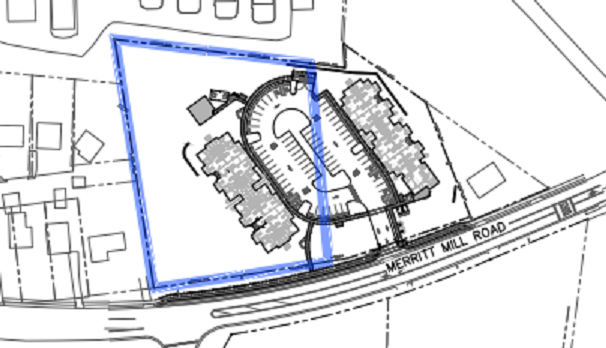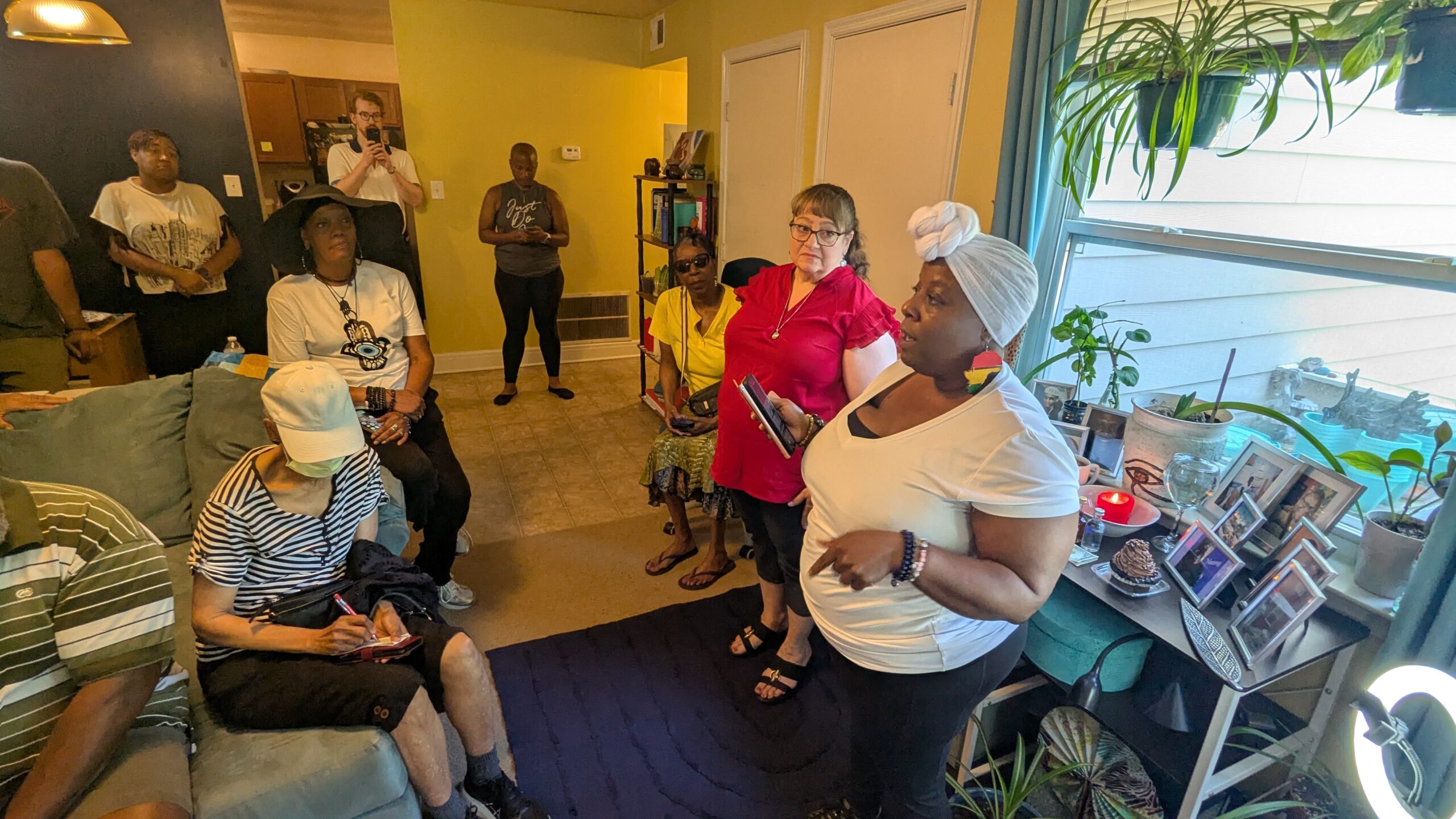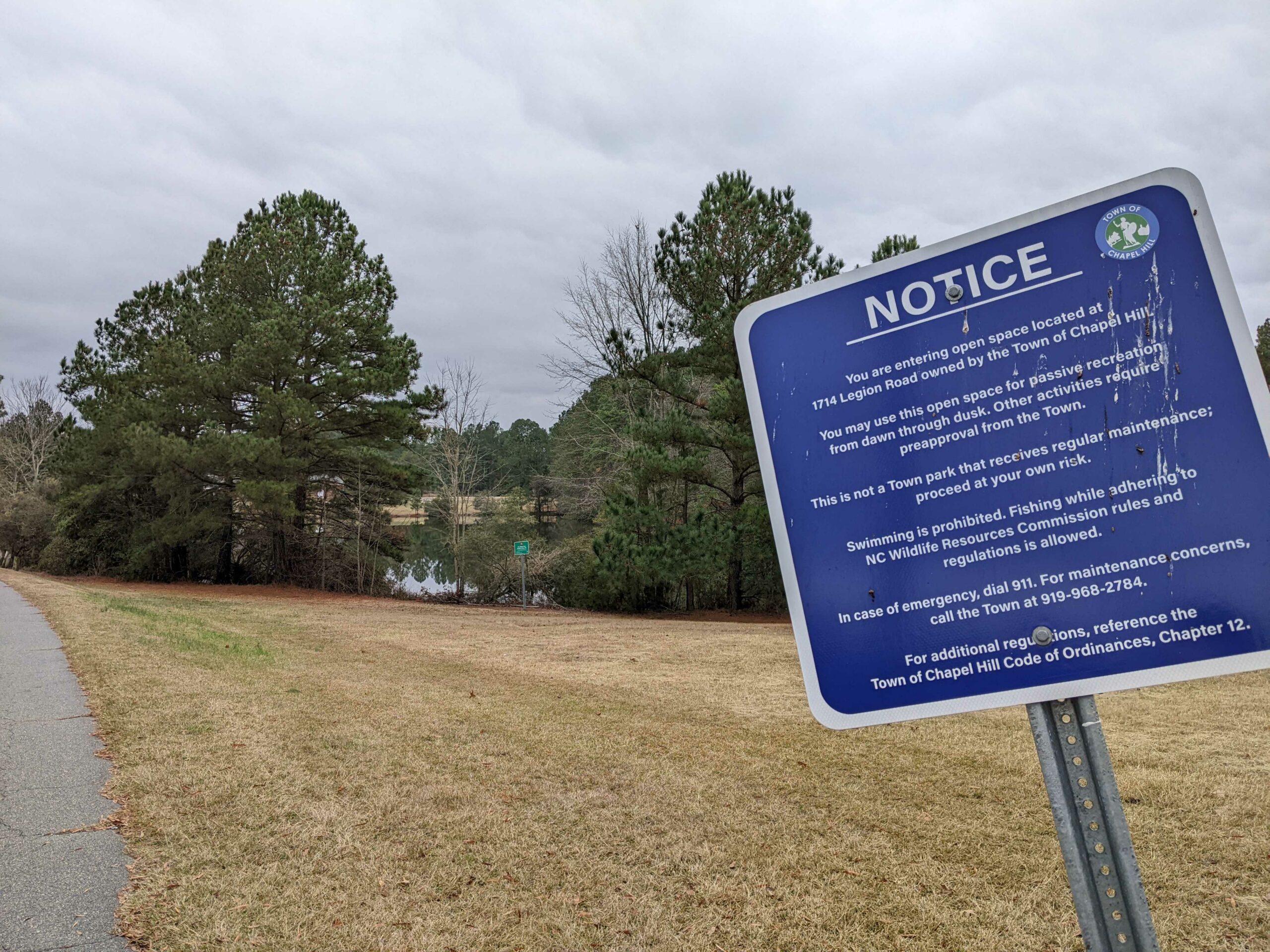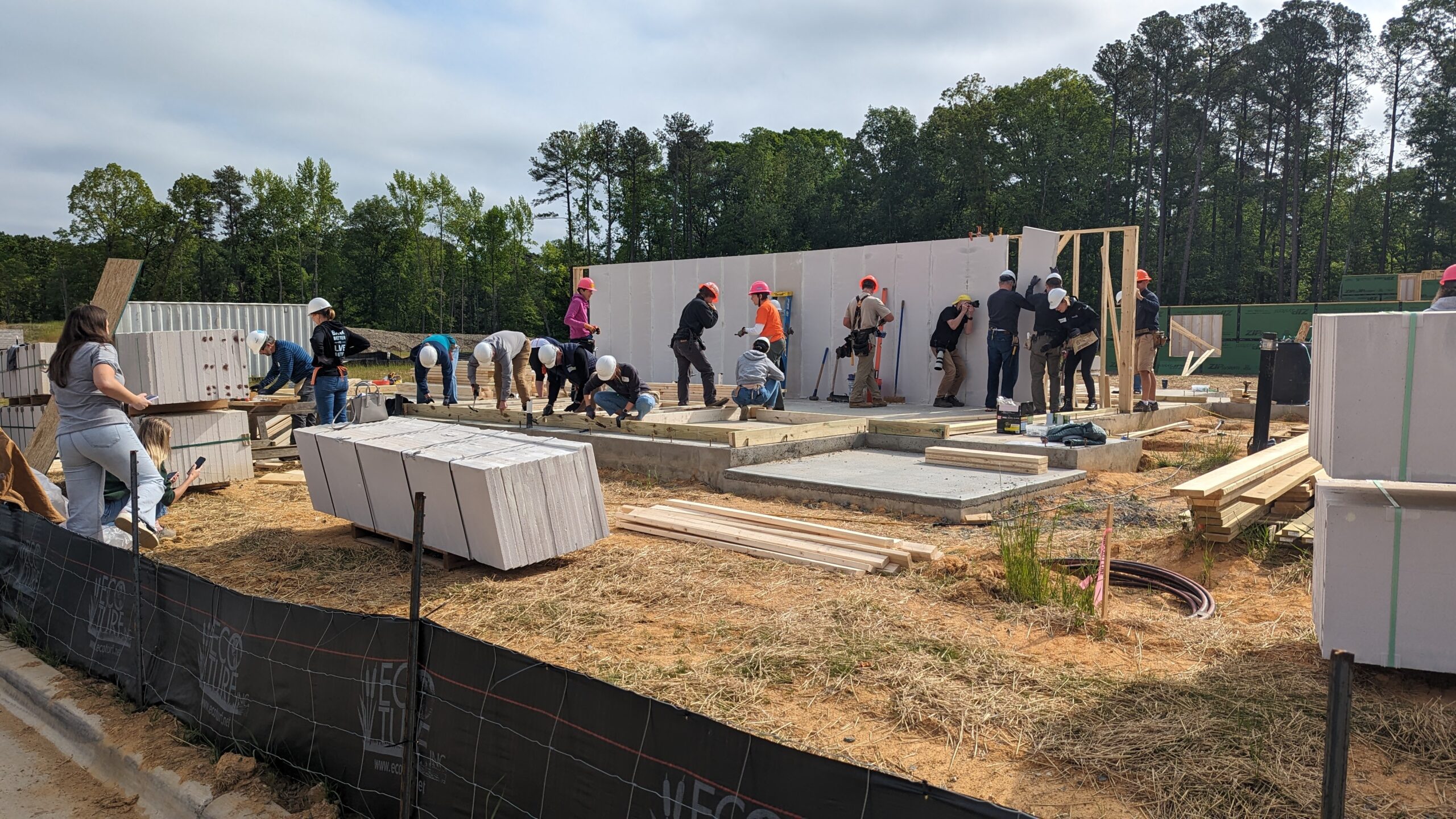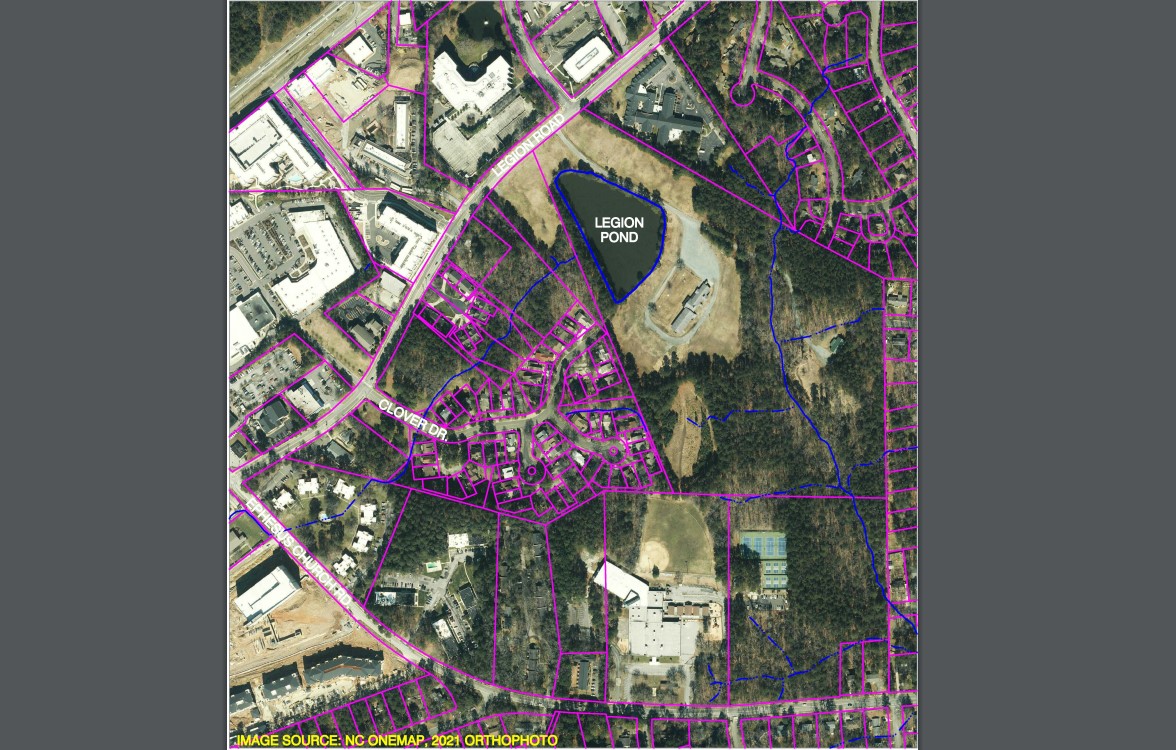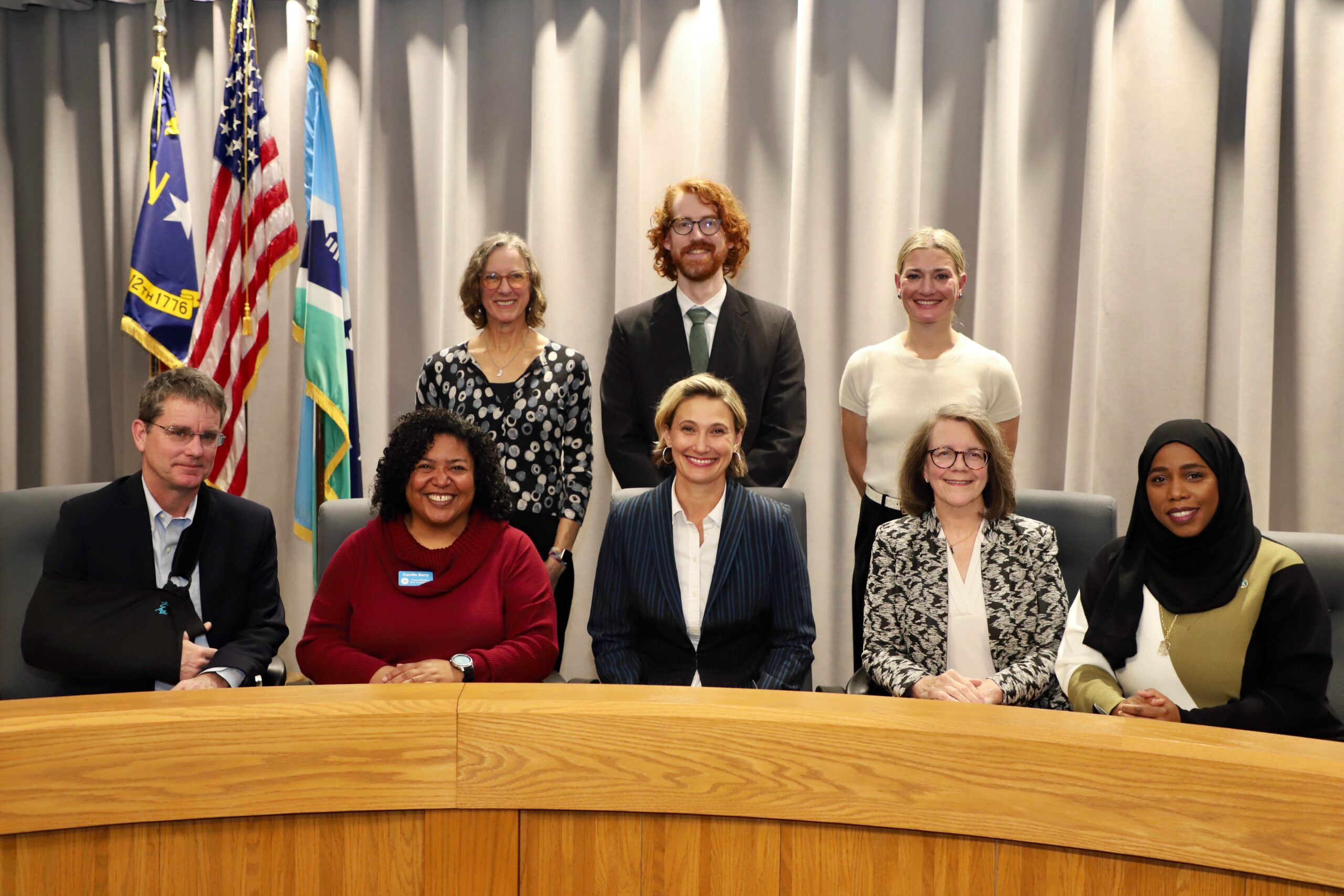
The 2024-25 Chapel Hill Town Council poses for its official portrait. (Photo via the Town of Chapel Hill.)
Petitions
Three petitions saw members of the public speak in support of them during the meeting. Those petitions were to:
- change the name of Cameron Avenue to Pauli Murray Avenue in honor of long-time Durham resident and civil rights activist Pauli Murray,
- build public restrooms in Chapel Hill’s downtown,
- and issue a $50 million affordable housing referendum on the November 2024 ballot, and dedicate the equivalent of two cents on the property tax rate in the next fiscal year budget to affordable housing.
Mayor Jessica Anderson addressed the first petition, submitted by a representative from Change the Names, a grassroots organization in Chapel Hill dedicated to changing the names of street signs referring to people known for engaging in racism.
“For the Change the Names petition, staff had done some preliminary work on street names last year,” said Mayor Anderson, “when looking into a petition to change the name of Dixie Drive. The manager and I agreed that it makes sense to have the Naming Committee meet with staff to review, and that meeting is scheduled for later this month, so the manager or I will keep you [the public] in the loop.”
Anderson also discussed another petition submitted during the meeting regarding the Chapel Hill Crossing project. The petitioners requested the Clark Lake Basin Dam, a privately owned dam affected by the development, to be included in an evaluation by the developers, after the developers did not have the assessment in last year’s evaluation.
“At the time,” said Anderson, “the developer offered to conduct a watershed basin study for the purpose of helping the Town understand water flows basin-wide. We welcome the opportunity for the developer to help us better understand the watershed conditions in the area of this project, and we do hope that the owners of the private dam will work with the NC dam safety program, which has oversight for dams statewide. The manager will be sharing information from the study with everyone when it’s complete. I do believe we’ve already shared with the residents who are responsible for the private property where they can get additional assistance from the state.”
Increase funding for Rosemary Street Parking garage
The council unanimously approved two resolutions regarding the East Rosemary Street parking garage project. The resolutions increased the project authorization by about $3 million and the amount the Town can reimburse itself from future borrowing.
Construction on the seven-story parking garage began in September 2021. The Town’s intent for the garage was to contribute 1,100 parking spots to the downtown to support new wet lab developments and a new UNC undergraduate admissions building.
The project experienced delays after demolition of the parking deck that was there previously. Contractors did not find the bedrock foundation they expected. Instead, they found the foundation to be ten feet lower than expected. To address this, the Town council approved $9 million to fill that extra space with micropiles, known for providing strong bases deep into the ground despite having smaller diameters. The approved funding, paid for through the Town’s fund balance and other financing, brought the total financial commitment of the construction project to around $48 million.
“Since then, the project has faced schedule delays and price escalations in the global construction market,” said Deputy Town Manager Mary Jane Nirdlinger. “We have been working with the design team and the contractor to evaluate and reduce costs, and the current estimate is for the deck to open this summer.”
Nirdlinger presented the town staff’s recommendation to increase the project authorization by around $3 million to cover the remaining costs for completing the deck. The increased funding will be used for wayfinding signage, installation of a cell phone booster system, low voltage system requirements, security cameras, and construction oversight. The additional funding brings the total financial commitment to around $51 million.
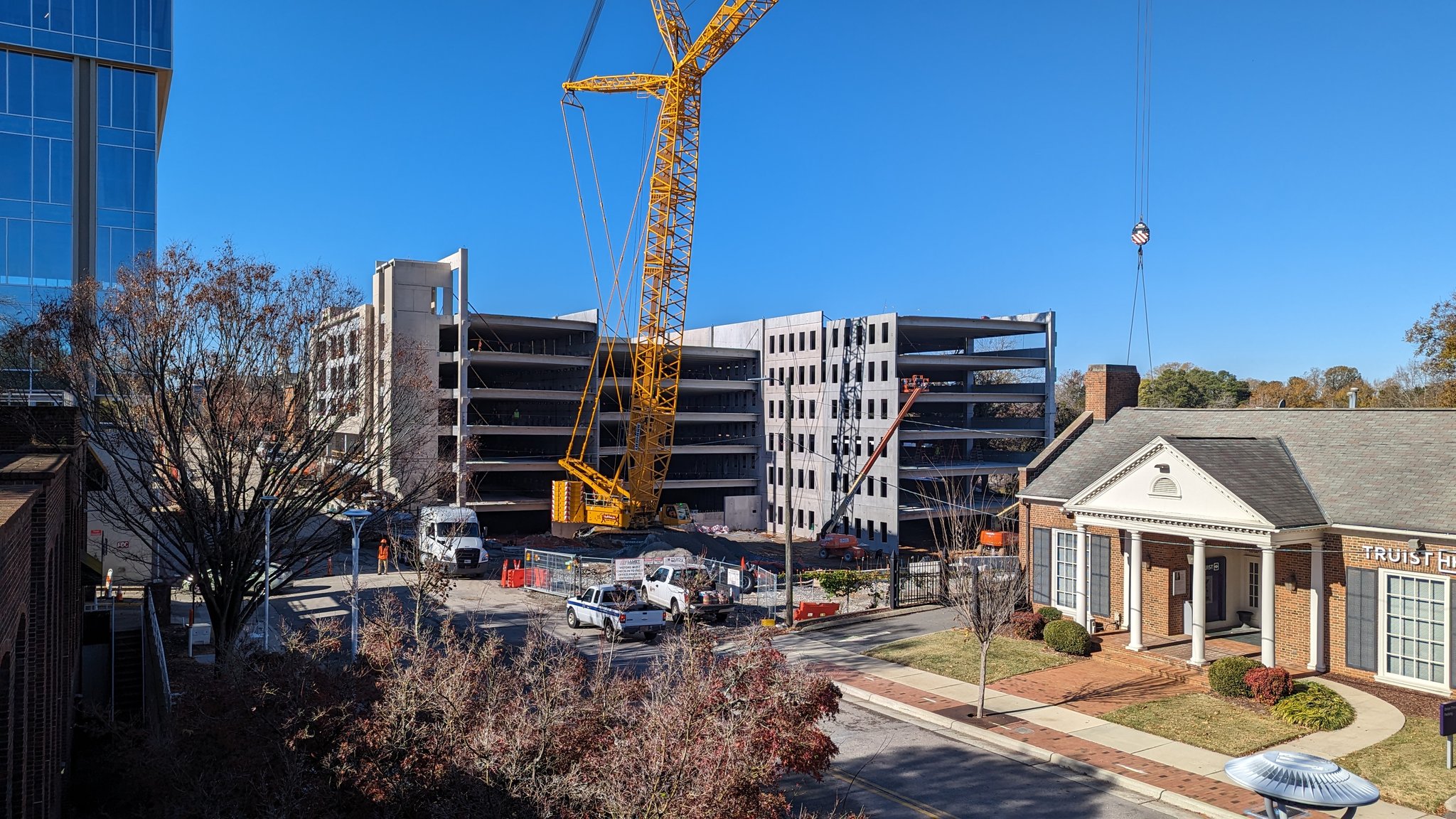
The new Rosemary Street Parking Deck’s construction seen from the top of the Wallace Deck, as of November 27. 2023.
“I will just say, I know we’re all frustrated by the challenges, delays, cost-overruns associated with this project,” said Mayor Anderson. “It is an important part of our East Rosemary renovation and innovation hub endeavors. Fortunately, we are going to open this summer. We also have an experienced parking manager in place, which is also a great addition. I think at this time, our top priority really needs to be for us to think creatively about how the deck can begin generating funds, consistent revenues from day one, so maybe thinking differently about how we were going to do leases and hourly.”
“I do think we should be considering a deeper dive,” Anderson continued, “possibly through an external audit to make sure that we learn lessons from this, and as the economy continues to be volatile, we make sure that we’re covering all our bases in the future.”
Council Member Camille Berry followed Anderson’s comments by commending staff for dealing with the projects’ challenges.
“I also want to express my sympathy for the staff [who] had to deal with the conditions that have changed to the ground itself. It’s not just the economy that we are battling; it’s also the conditions of the site which we didn’t know. I’m not sure what lessons are there, but I want to say that I recognize that it has been a challenge for you and for those that are working with you to anticipate and then respond to what is.”
Nirdlinger said she expects the project to be completed by summer but did not provide a specific date.
Discussion to authorize the town manager to prepare a new framework for advisory boards
Last year, several council members petitioned for staff to review the appointment process for the advisory board in Chapel Hill. The petition asked staff to assess boards and commissions with consideration of the role of boards and commissions, possible consolidation or phasing-out of any existing boards, and methods to ensure the boards reflect the Town’s population. Strategic Communications and Marketing Executive Director Susan Brown presented progress the staff has made on a draft resolution that would allow the town manager to formally prepare a new framework for appointing advisory board members.
Brown laid out key considerations the staff was informed by following from the council’s 2023 petition, including the role and charge of boards and commissions, potential consolidation or phasing-out of existing boards, and ways to ensure that boards reflect the Town’s population concerning screening and appointing candidates. The staff concluded 11 boards were in the scope of this petition:
- Community Policing Advisory Committee
- Cultural Arts Commission
- Environmental Sustainability Advisory Board
- Grievance Hearing Board
- Housing Advisory Board
- Human Services Advisory Board
- Justice in Action Committee
- Library Advisory Board
- Parks, Greenways, and Recreation Commission
- Stormwater Management Utility Advisory Board
- Transportation and Connectivity Advisory Board
Staff concluded, from the Town’s commitments and investments, that the need for some Boards has changed, and the boards that focus on policy-level guidance to council report having a higher sense of impact than those with lower-level policy guidance. Some board members were concerned with their lack of overall impact, meeting lengths, and staff expertise.
Mayor Anderson commented on a meeting she held with Town Manager Chris Blue and chairs of the various boards within the scope of the petition. She said the boards were collectively interested in aligning their goals with the town council’s. She said the board members were interested in getting clarity on tangible ways to measure the impact of their advice after they’ve provided it to the council.
“They also were very aware and interested in changing the fact that some of our boards are not diverse enough,” said the mayor, “and they are interested as well in working with the staff to figure out ways to achieve additional diversity in a number of ways.”
Staff recommended certain changes to board practices, including boards having seven members, holding consistent membership practices, having consistent terms of office, and having a consistent agenda structure. They also recommended that the boards define chair, vice chair, and liaison roles, meet four times during the Chapel Hill Town Council session from September to June, and receive Diversity, Equity, and Inclusion training.
The council agreed the discussion is worthy of a work session to further delve into the details of the new policy but did not advance any resolution at this meeting.
Other Related News: Chapel Hill’s water, sewer boundary update
The Town of Hillsborough voted to expand Chapel Hill’s water and sewer boundary farther south toward Chatham County. The resolution, passed by Chapel Hill and Carrboro, must be approved by all WASMPBA members. After Hillsborough approved the resolution, two jurisdictions remain to address the proposed expansion: OWASA and Orange County.
To watch the full Chapel Hill Town Council meeting from March 6, click here.
Chapelboro.com does not charge subscription fees, and you can directly support our efforts in local journalism here. Want more of what you see on Chapelboro? Let us bring free local news and community information to you by signing up for our newsletter.

